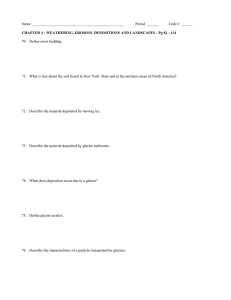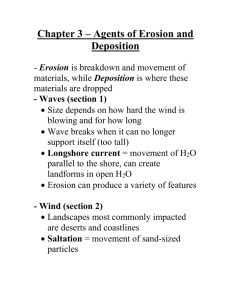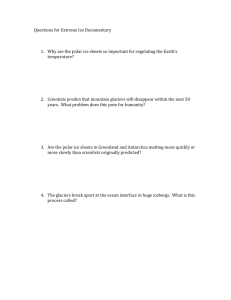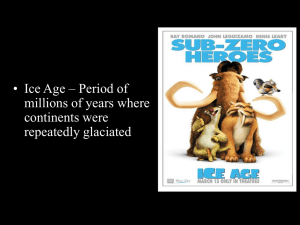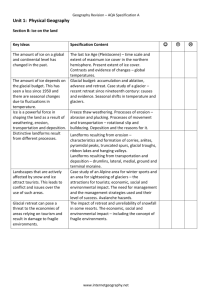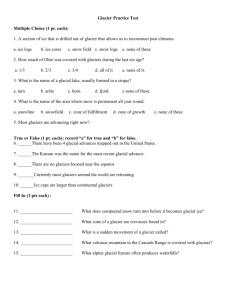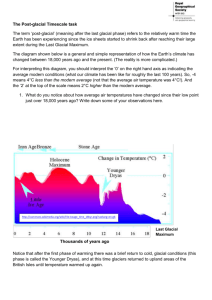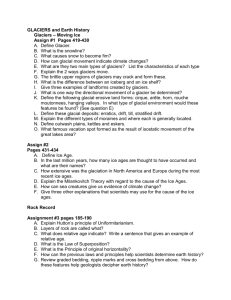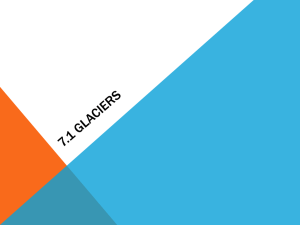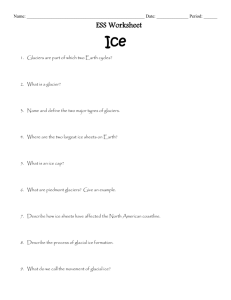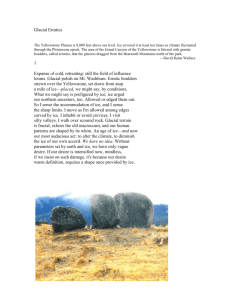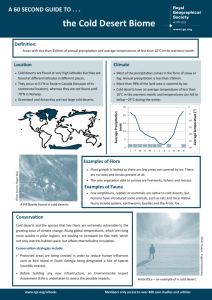Glaciers & Deserts - ES-Emerald(2010
advertisement
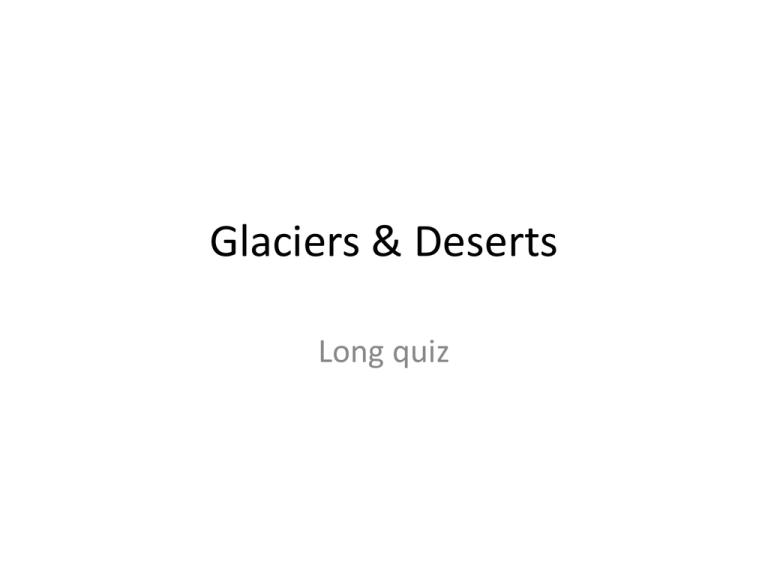
Glaciers & Deserts Long quiz 1. What do we call this cracks? 2. What do we call the zone where these cracks are found? 3. Describe in 1 word/phrase the zone where these cracks are found. 4. What do we call the huge mass of ice floating in the water? 5. What do we call the process of breaking of these large chunks of ice? 6. Compare the rate of breaking down of ice now and during the early 19th century. 7. What type of glaciers is shown in this picture? 8-9 . Identify these features. 10. What do the black stripes imply? 11. Which view in the diagram shows how a line of stakes planted straight across the toe area of a mountain glacier will look after a few months? 12-13. What type of flow occurs in these regions? 14. What does the snowline represent? 15. What happens when the budget is balanced? 16. What does the black line tell us? 17. What will happen if I increase the amount of snowfall? 18. What will happen if I increase the temperature? 19-22. Identify these features. 23. What will happen to these topography after undergoing period of glaciations? 24. What do we call this rock? 25. What has deposited this? 26. What do we call materials deposited by glacial ice? 27. What do call materials deposited by glacial melt water? 28. What are these holes? 29. Describe how they form. 30. Explain the Milankovitch theory (what it is & what are the milankovitch cycle) 31. What is the latitude range where the major deserts of the world are found? 32. List the categories of deserts? 33. What is this feature? 34. What type of erosion produces this feature? 35. Aside this feature, what other feature can be produced by this type of erosion? 36-41. Identify these types of sand dunes. 43. Identify this feature. 44. What does the arrow represent. 45. What do we call these features? 46. Describe how these are produce. 47. What do we call theseindividual fan-shaped features? 48. How are these formed? 49. What do we call the features that are formed when these fans coalesce? 50. Identify these features
